“Remembering Akiko Tanaka”
by Zhujun Wu
Editor’s note: Akiko Tanaka was the Japanese translator of The Lord of the Rings and is the inspiration for this issue of Hivemind Magazine. The following is an original biography written by a student whose life was directly impacted by Tanaka-sensei’s life as a translator, cultural ambassador, and family friend.
I.
In autumn 1945, the lookout at Qingdao port signaled that the hikiage ships had arrived. The hikiagesha, or Japanese civilians who had been living in concession districts in Qingdao, China, began to board. Hikiage (引き揚げ) here means “retreat” and refers to the repatriation of Japanese nationals who had been living in imperial Japan’s overseas territories such as China, Korea and Sakhalin. After the Showa Emperor surrendered at the end of World War II, Japanese settlers returned to Japan, though for some, this was the first time visiting their “motherland.” Each person was allowed to bring a few kilos of rice, a kilo of salt or sugar, their clothes, and a quilt, leaving most of their belongings behind. 19-year-old Akiko Kono and her family quickly joined the line. Having grown up in China, this trip marked the only the second time that Akiko would physically set foot in Japan. She did not visit China again until the 1980s.
Many years later, Akiko Kono would become known as the assistant translator of the Lord of the Rings under the name of Akiko Tanaka, her husband’s family name. Akiko was a child of colonial Japan. She was born in Qingdao in 1926, a coastal city built in 1897. At that time, Germany occupied what was once a small fishing village, investing in the construction of ports, railways, underground sewer systems, and urban architecture, as well as the elementary school that young Akiko eventually attended. Near her family’s house, there was a German bakery that Akiko remembered fondly. Her family’s house was located in a concession district, which was a colonized territory where Chinese authorities did not possess administrative power.
Although the Germans first established the city and lived in the concession district, Japanese imperial troops later gained control over this area. Akiko’s father was a businessman who worked for Mitsubishi, a trading company, who was sent to Qingdao to conduct business. Akiko’s mother, Mineko, was a Christian. She had been to the U.S. to learn sewing in her youth, hoping to open a dress shop instead of getting married. However, she ultimately ended up marrying Akiko’s father and joined him as he settled in China. The concession district where Akiko lived was a highly westernized community that was not far away from Chinese society in terms of physical distance, but very far in terms of social and living status. Yet the seaside town of Qingdao, despite its precarious political situation, was framed by a beautiful view of the ocean and streets lined with acacia trees. Decades later, Akiko would vividly describe Qingdao’s sunset and the way the sun fell into the sea.
Sadly, Akiko’s mother passed away after having a stillborn son in 1936, leaving Akiko, her two younger sisters, and her father alone. With three young daughters to care for, Akiko’s father remarried a woman named Riki. The family lived in a western-style home that was furnished in the Japanese style, their alcove decorated with a traditional hanging scroll (掛軸 or kakejiku). Just before Akiko and her family left China in 1945, Donald Keene, then a major in the U.S. Navy, paid a visit to their home to discuss Japanese culture. Keene would later become a famous scholar of Japanese literature, teaching at Columbia University for over 50 years.
Qingdao wasn’t the only Chinese city that Akiko remembered from her childhood. In the late 1930s, she was enrolled in a junior high school in Jinan, the capital of Shandong province in northeastern China. There, Akiko attended a Japanese school where the portrait of the emperor of Japan was displayed on the wall of every classroom–a requirement for all Japanese schools at the time. In her later years, Akiko recalled that it was taboo to stare at the portrait, as students were supposed to avoid seeing it to show respect. From that time, Akiko started to develop a strong sentiment against militarism, a sentiment which remained for the rest of her life.
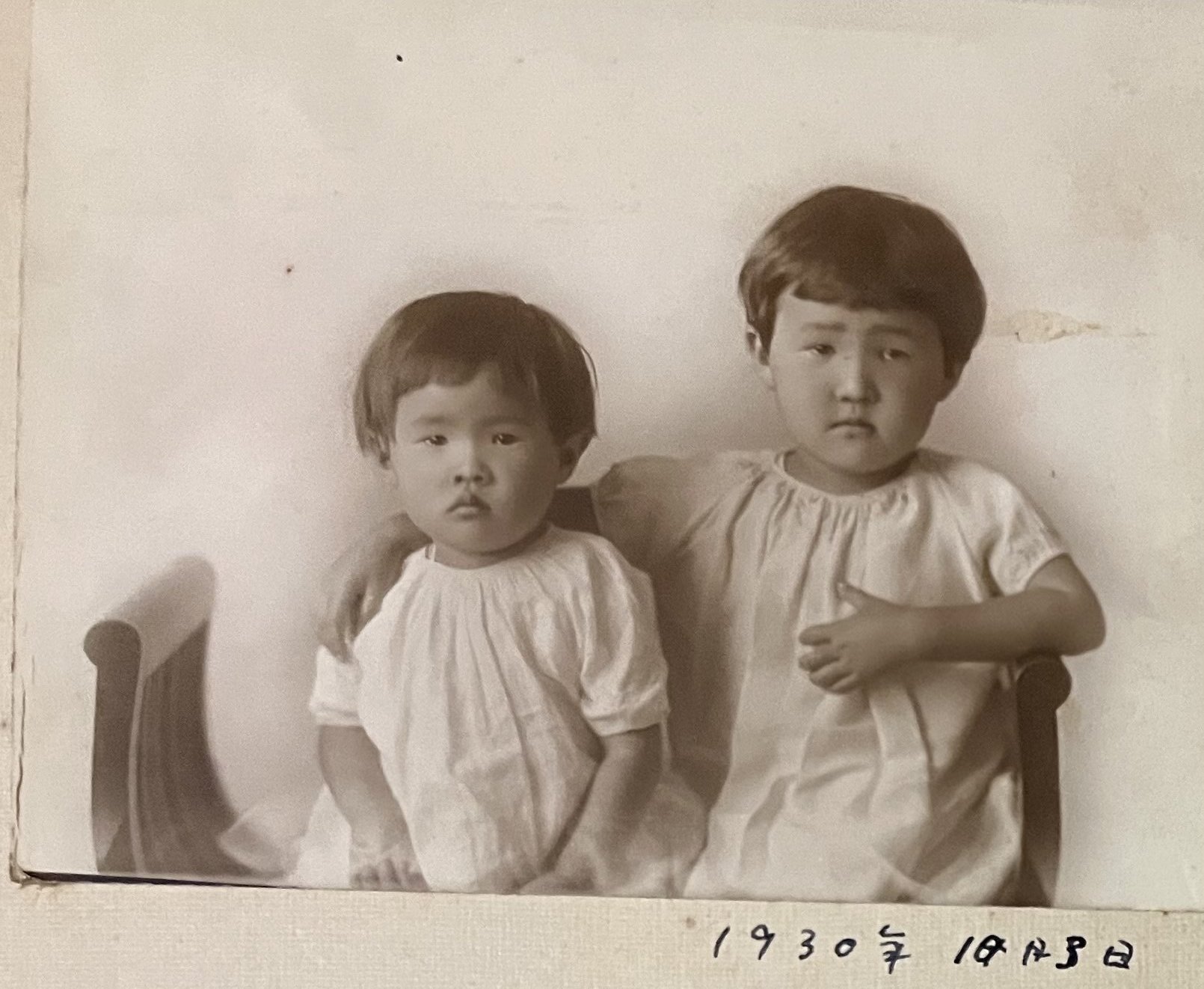
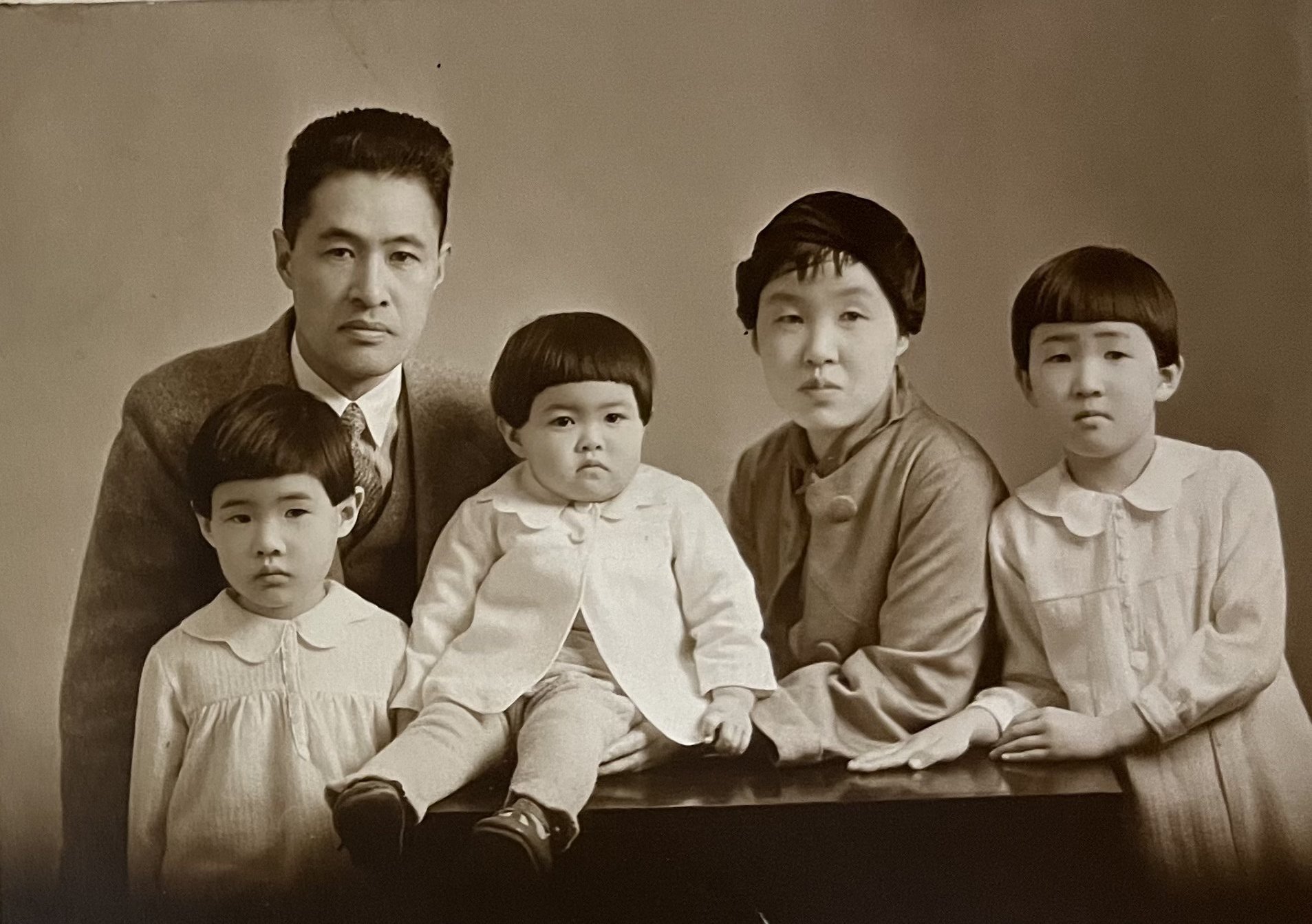
After finishing junior high school, Akiko traveled to Japan to enroll in Doshisha Women’s College of Liberal Arts in Kyoto. But Japan was at war. Male students were expected to enlist in the army, while female students were expected to work in factories. Like many women of that era, young Akiko spent most of her time producing airline parts in a factory rather than attending classes. As she recalled, students were largely untrained and unskilled workers, and the parts that they produced were of poor quality. When Akiko was not working, she returned to her dormitory, where she did not have enough to eat. Even though she had not yet graduated, Akiko decided to return to her family in Qingdao.
This was a life-risking decision. The Second Sino-Japanese War had begun, and the Pacific was now a major battlefield of World War II. Commercial ships were continuously bombed during this period. In fact, the day before Akiko planned to leave for Qingdao, a ship on the same sea route she planned to take was bombed. Still, she chose to embark the following day.
Akiko was back in Qingdao, a city gripped by war. “While the war was ongoing, she couldn’t see the future, or even the next day. She couldn’t imagine that tomorrow would ever come,” said Maya, Akiko’s daughter. “When she heard that the war ended and Japan was defeated, she told herself, ‘Finally, I can live after all these years.’”
According to Maya, Akiko used to talk about her childhood in Qingdao and how it shaped her personality and feelings about the war. She also frequently spoke about her experiences during the war, though what she described about those days was probably only the tip of the iceberg. While raised in a different historical context, Maya could still perceive what she meant: How an individual’s life in wartime is like a tiny speck of dust struggling in the midst of a windstorm. When Akiko left Qingdao in autumn 1945, the war was finally over. Though she could only bring her personal belongings and a few kilos of supplies, she could finally see a possible future.
II.
After returning to Japan, Akiko’s family remained in Kyoto for a short period of time. Tokyo had not yet recovered from the massive bombings of March 9-10, 1945 and people there were starving. Although the U.S. Air Force dropped items like bread and chocolate over the metropolis; there was never enough food to feed a family of five. Many people suffered from malnutrition. Akiko’s father lost his job at Mitsubishi company because of the dissolution of the zaibatsu (Japanese conglomerates), which were partially disbanded during the Allied occupation of Japan (1945-1952).
Over time, the financial condition of Akiko’s family gradually improved. Akiko’s stepmother Riki could speak English and started a business selling traditional Japanese luxuries such as ivory carved accessories to the wives of American soldiers. As Japan continued to slowly recover from the war, Akiko enrolled in Keio University in 1949, graduating with an undergraduate degree in English literature. Her professor was Japanese poet Junzaburō Nishiwaki, who studied abroad in the U.K., when he was young. She continued her education at Keio University graduate school, studying French literature with her mentor, Toshihiko Izutsu, a linguistics scholar and philosopher. While attending graduate school during the day, she also worked as an English teacher at a high school offering night classes.
“At the workplace, she found that male teachers would make female teachers serve tea, as serving tea was considered a women’s duty in families and companies. This still remains the same nowadays,” said Maya. “Though when the male teachers asked her to serve them, she refused.”
During the time that Akiko worked at the high school, she also came into contact with colleagues who were easy-going, respectful, and devoted to their students. While attending a lecture by Rentarō Kota, a well-respected scholar of Chinese classics, she met her future husband, Hisao Tanaka (1913-1997), a history professor at Chiba University. Unfortunately, they were unable to marry immediately due to the opposition of Hisao’s sister. This may have been the reason that Akiko made the decision to leave Japan.
After leaving her job as a Japanese teacher in Montreal, Akiko flew thousands of miles across the Pacific Ocean to live in Montreal, Canada. She was able to continue her education due to the financial support of her stepmother, who encouraged Akiko to study abroad. At that time, few Japanese people could afford going to Canada due to the poor exchange rate. Akiko ended up living with two host families, both of whom had a significant impact on her perception of Canadian culture. She helped to plant flowers in her host family’s garden and learned to cook French cuisine. From time to time, she would also travel to other places in North America, during which she gradually noticed the difference between the English taught in textbooks in Japan and the actual use of English in native speaking countries.
Akiko remembered staying at her friend’s home in Vermont for a week during the summer. It was a small town where everyone seemed to know each other. Even though Akiko was from Japan and WWII had ended only recently, she was warmly welcomed. Cottages lay between hills covered with birch and maple trees. When she asked for directions to the market, she felt that people’s eyes were clear as crystals, the color of the surrounding green hills and blue water that they saw every day. She sensed a deep friendliness when she spoke with local people, even as she was aware that many Japanese Americans were still being mistreated in other parts of the country. Many years later, Akiko said Vermont meant “green mountain” in French. She always remembered how Lake Champlain glittered under the sun.
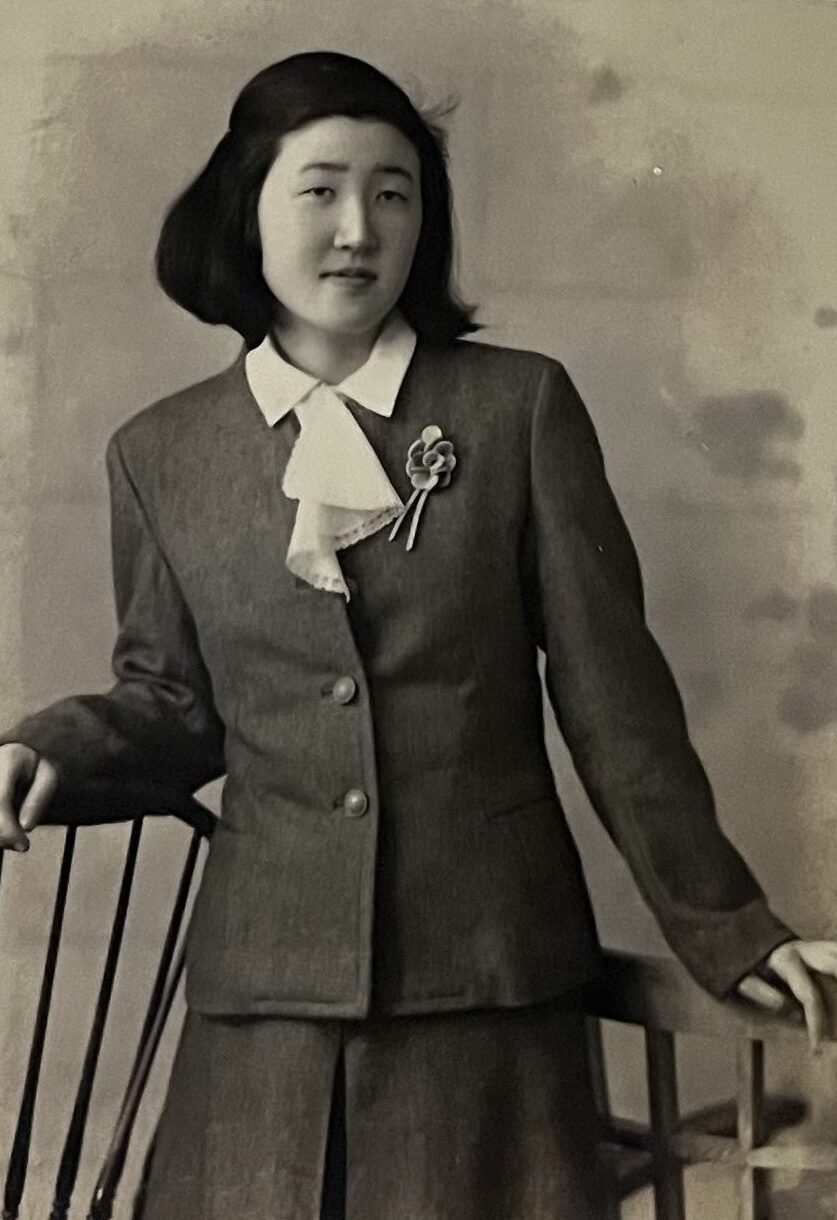
Two years after Akiko boarded the flight to Montreal, she flew back to Tokyo and married Hisao Tanaka. She immediately commenced work on her first major work, Kennedy (ケネディ). She drafted a book-length biography of John F. Kennedy and his children for her uncle, Gunji Hosono, who had been acquainted with Kennedy during his visit to Japan. Although Akiko’s name was not credited, she was devoted to her part. Soon, she became passionate about spreading Western literature to Japanese readers.
Over the years, Akiko continued to build her portfolio with a series of short translations, which included several children’s stories by Scottish writer Mollie Hunter. Then, together with writer Teiji Seta, she translated The Lord of the Rings. It is worth noting that while Teiji Seta is credited as the lead translator of the series, he was primarily a children’s book writer, not a translator. Hiring two people – a professional writer and a professional translator – used to be a common way to publish foreign literature in Japan.
The Japanese version of The Lord of the Rings was an exceptional piece of translation. From the intricate dialogue of characters to the carefully-rhymed poems and lyrics, everything was worded precisely. Tolkien utilizes puns, allusions, and specific cultural references that are difficult for Japanese readers to perceive. To surmount this challenge, Teiji and Akiko employed onomatopoeia to characterize the speech of hobbits, dwarves, and other characters. They also used Japanese honorific and humble forms to articulate personal relationships and power hierarchies.
For instance, Teiji and Akiko have Samwise use the pronoun “おら” or “ora” to refer to himself instead of “おれ” (ore) or “わたし” (watashi). This implies that he has a folksy way of speaking that captures his character’s simple and forthright nature. Further, Teiji and Akiko utilized uncommon words or words with particular connotations to highlight certain elements of the plot. Bilbo Baggins uses the word “いとしい” or itoshii (lovely; dearest) to describe the ring (“My precious”). This term is a slightly uncommon endearment that causes the reader to pause, also invoking the image of a mother who gazes with longing at an adorable child she wants to cuddle.
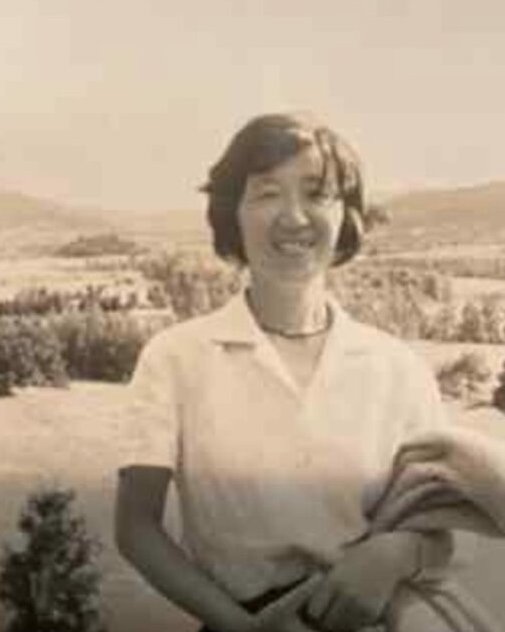
Akiko often said that “the hardest part of translating a book is translating a characters’ dialogue.” Japanese utilizes honorific or informal forms depending on an individual’s personality, relationship to others, and situation in a particular moment. At the beginning of the novel, Bilbo Baggins speaks to Gandalf using honorific forms. This is possibly because Gandalf is older and wiser, or because Bilbo is a more formal person who wants to show that he respects hierarchy and tradition. Gandalf, as his elder and superior, speaks to Bilbo using the informal form of Japanese. This usage can also represent closeness and informality, as family and friends tend to utilize the informal form; it can also suggest that Gandalf has a fun-loving and casual personality.
Lyrics, which play a significant role in the book, were also difficult to translate. Please see a comparison of lyrics below. Note the ways in which the authors seamlessly translate the poetry, utilizing Japanese poetic forms (simile, inverted structure, repetition) while retaining the original flow and meaning.
English:
Snow-white! Snow-white! O Lady clear!
O Queen beyond the Western Seas!
O Light to us that wander here.
Amid the world of woven trees!
Gilthoniel! O Elbereth!
Clear are thy eyes and bright thy breath!
Snow-white! Snow-white! We sing to thee.
In a far land beyond the sea.
O stars that in the Sunless Year.
With Shining hand by her were sown,
In windy fields now bright and clear.
We see your silver blossom blown!
O Elbereth! Gilthoniel!
We still remember, we who dwell.
In this far land beneath the trees,
Thy starlight on the Western Seas.
Japanese:
雪のように、まっしろな、きれいなあなた!
西の海のかなたにおわす后さま!
木々の枝交わすこの地のわれらが!
はるかにしたう、光の君よ!
おお、ギルソニエルよ!
エルベレスよ!
あなたの眼は澄み、吐く息は光る!
雪のように、まっしろなあなたに、
海のかなたから、ほめ歌をうたう。
陽の昇らぬ年に、かのひとの光る手で、
星々は空にまかれた。
風吹く原に明るくきよく、
あおぐは、あなたの白銀の花。
おお、エルベレスよ!ギルソニエルよ!
この遠い国の木々の下に住んで、
いまもなおもい出すのは、
西の海に輝くあなたの星の光。
After translating The Lord of the Rings, Akiko translated several other works by Tolkien including: Mr. Bliss, Letters from Father Christmas, Poems from the Lord of the Rings, and The Silmarillion. In the early 2000s, she was also invited to collaborate on the translation of the Japanese subtitles for the The Lord of the Rings movie series. Ultimately, it can be said that Teiji Seta and Akiko Tanaka’s translation beautifully utilized the Japanese language to create a timeless piece that has stood the test of time. As Akiko’s cousin notes, their translation achieved an incredible response upon its release. Despite the change of language over time, their 50-year-old work remains the definitive translation today.
III.
I lived on the second floor of Grandma Akiko and Aunt Maya’s house in Tokyo when I was a little girl. My parents were international students from China who rented Grandma Akiko’s apartment. The rent was one-third of the market price, a heavy discount from Grandma Akiko to help support our struggling family. Back then, the majority of Chinese people lived in poverty. A meal in a fast food restaurant in Tokyo was roughly 800-900 yen, which was one-fifth of a month’s salary for people living in Shanghai. When my dad went to graduate school in Japan for his doctorate in Japanese literature, he had to take three part-time jobs to earn a living, working as a convenience store cashier, a supermarket stocker, and a night shift security guard at an elementary school. He often patrolled at night in the silent darkness.
As he was searching for housing near the university, my dad met Grandma Akiko, who offered him a place to rent. My mom and dad moved into the second floor of her wooden house, which was converted into an apartment unit. Every Sunday, my dad visited “Tanaka-sensei” for an English lesson, reading a newspaper in English. After he returned home, my mom would go downstairs and knock on Grandma Akiko’s door to begin her own lesson in Japanese. As my mom’s Japanese writing skills improved, Grandma Akiko went from assigning newspaper articles to scholarly articles. Soon, my mom was able to pass a difficult entrance examination and enter her dream university. Thanks to Grandma Akiko, she was able to enroll in a doctoral program.
My mom continued to visit Grandma Akiko almost every weekend. Every time when she arrived, she would find desserts such as cakes and chocolates on Grandma Akiko’s dining table. Over tea and sweets, they would talk about pretty much everything, including cultural situations that my mom didn’t know how to deal with, such as unspoken dress codes and unexpected college expenses.
For instance, Japanese graduate programs often hold “合宿” or “gasshuku,” short overnight research conferences for the professor and the entire graduate cohort. These research conferences are meant to be brief and inexpensive bonding exercises for the seminar to develop their research proposals, but staying in a hotel was expensive for a Chinese student who had to do part-time work to earn a living. While my mom hesitated to spend so much money on a gasshuku, Grandma Akiko encouraged her to go to better understand Japanese university culture. My parents, a young couple from China, not only learned about the values and customs of Japanese people from Grandma Akiko, but more importantly, how to treat those who grew up in different societies and cultural backgrounds.
On the first floor of the wooden house, my mom also tried to learn about North American culture from Grandma Akiko. That was when she heard about customs like eating turkey on Thanksgiving and how to cook spaghetti and beef bourguignon. I was born in a nearby hospital and spent my first few years living on the second floor of Grandma Akiko’s house. As I grew up, Grandma Akiko gave me piles of children’s picture books. I still remember the day when my mom took me downstairs with a gift of a box of tomatoes as she taught me how to say “Arigatou gozaimasu (Thank you).” Even after we moved back to Shanghai, every year before my birthday and Christmas, I would receive a package from Japan that included stickers, cute erasers, pretty shirts, and dresses – everything a little girl would wish for. I had my own Santa Claus, and she was Grandma Akiko.
I remember during those cold winter days when a package arrived, my mom would call me and the rest of the family to gather and read the letters and cards from Grandma Akiko. Afterwards, it was time to write back and select gifts for the Lunar New Year. It is said that people from different cultural backgrounds find it harder to be friends. This can be true, but kindness can be passed on through time and between people, regardless of borders. My parents were not the only students of “Tanaka-sensei.” They were not the only people who received Grandma Akiko’s help. Tanaka-sensei passed her wisdom along generously and seldom complained about the difficult days of war and hunger or the fact that her work was not always recognized. In the same way that Akiko Tanaka introduced the Lord of the Rings and other English books to generations upon generations of Japanese readers, she led her students, family, and friends to live compassionately, extending their worldviews beyond themselves and into the horizon.
Readers often recognize the greatness of Tolkien’s book. They enjoy entering Middle-earth and sharing the ups and downs of Frodo and the rest of the fellowship of the ring. Few people notice the translator. I believe that Grandma Akiko not only achieved greatness through her translations; she also walked a path through a life worth telling.
Akiko Tanaka passed away on December 9th, 2020 at the age of 94. She now rests in the Mori no Cemetery, the Cemetery of Trees. This is a cemetery where family members can select a tree to plant alongside their departed loved one. When I visited Grandma Akiko’s resting place in winter of 2023, I saw saplings growing throughout the cemetery and ponds that will eventually be full of tadpoles in the spring. I like to think that Grandma Akiko has become one of the trees; that she continues to stand there; that she continues to grow. I know her kindness and compassion will continue to grow inside of the lives she touched, including mine.
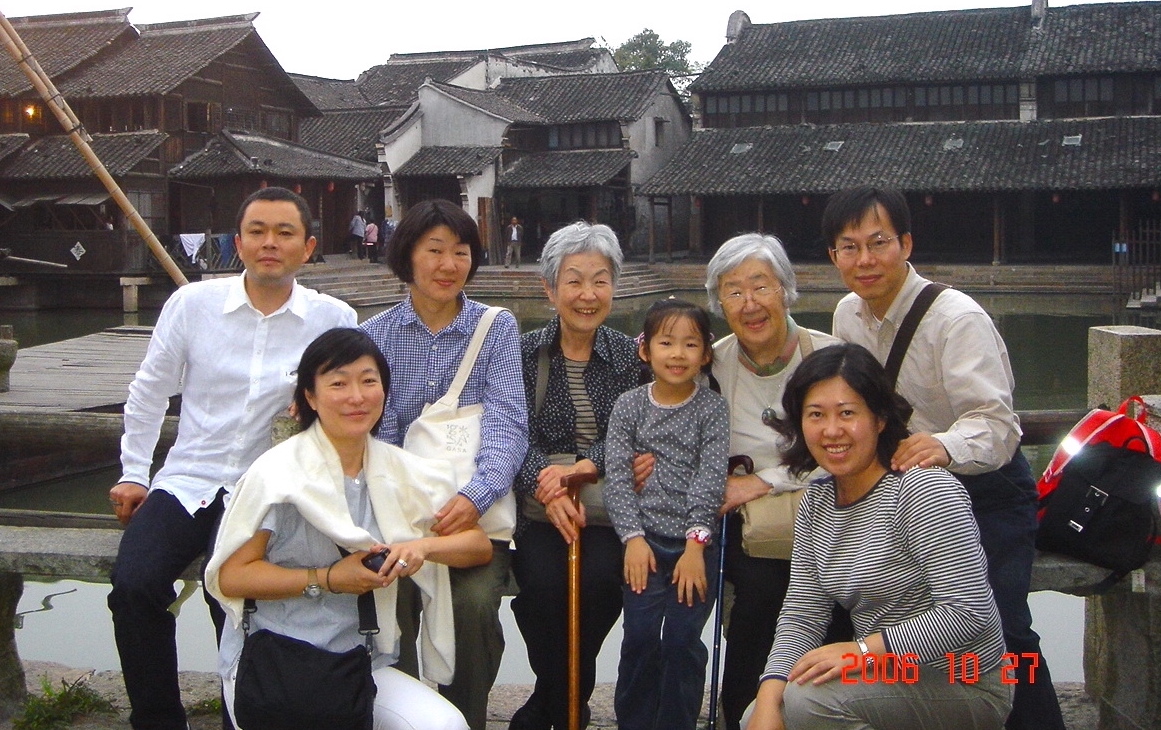
Acknowledgements
This essay was written for Georgia Tech Hivemind magazine. I would like to express my deep gratitude to Aunt Maya Tanaka and Ms. Fumiko Miyamoto for their generous support. Special thanks to Dr. Amanda Weiss and the East Asian Media VIP group. I could not complete this essay without your help.
About the Author
Zhujun Wu is currently an undergraduate student studying Music Technology at the Georgia Institute of Technology. Born in Tokyo, Zhujun grew up in Shanghai and came to Atlanta for college. She is interested in Japanese to English and English to Chinese science fiction translation.